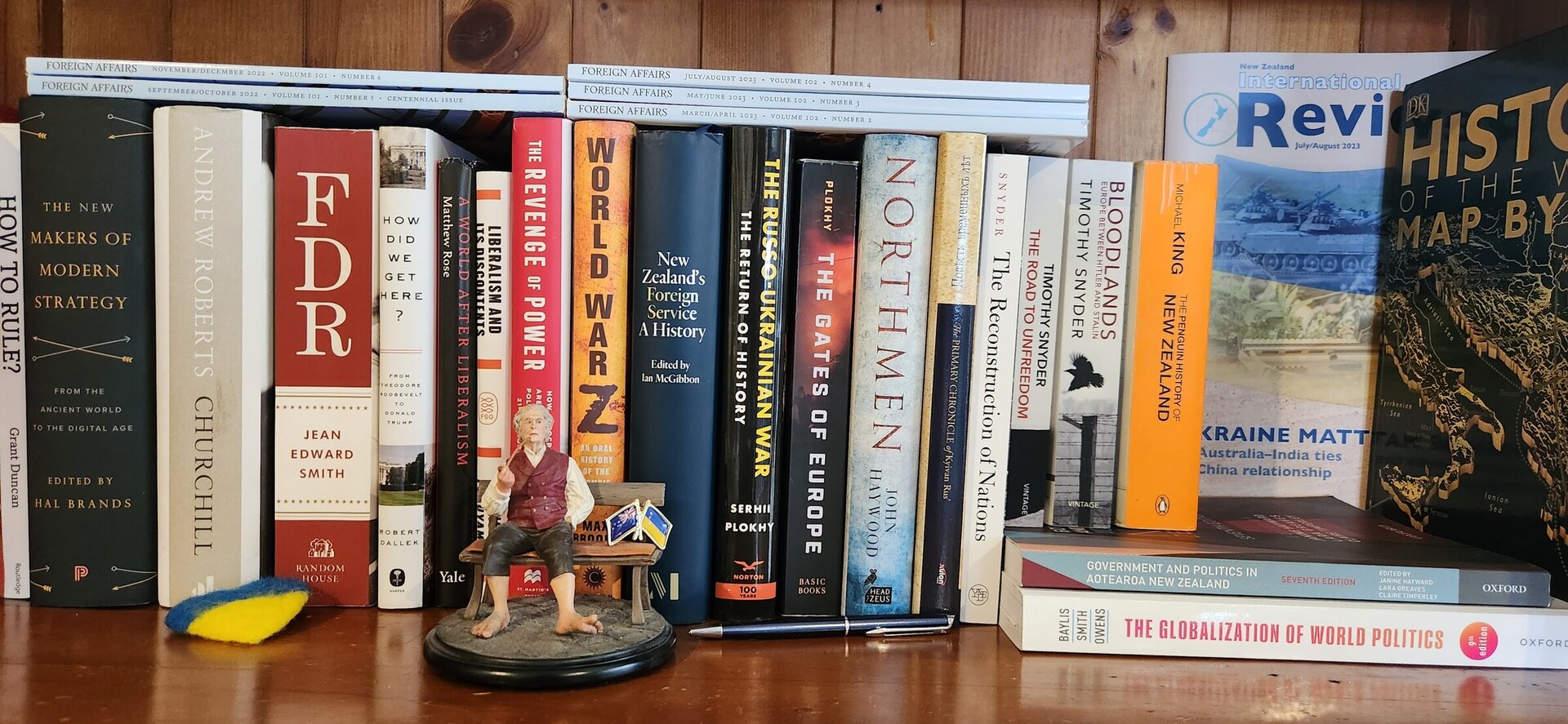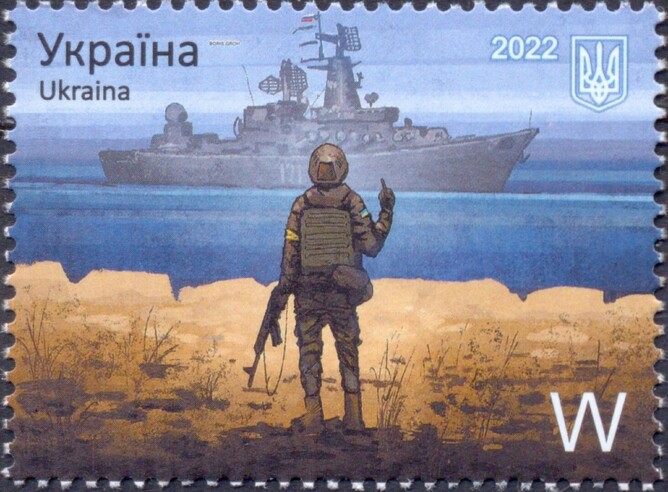Strengthening Ukraine, and destructing Russia
Reflections by Kyrylo Cyril K.
The main strength of nationalism is its social perspective – it brings legitimacy to a state as a political entity representing people united by values and/or ethnicity. While political realism thinks about world affairs as chess moves generalising individuals into cumulative material or military resources, and mercantilism assesses where financial benefits lie, nationalism adds ideological pillar for a nation-state’s stability or formation. To give up some freedoms and control to a state people need to be sure that such state will represent their determination in principle, for which they must have something significant in common. At times of limited and slow interconnectedness those were simple things – language, traditions, imagined common descent, which enabled ethnic nationalism to form, strengthen and define borders of states, startling from Britain and France in 18th-19th centuries and mainly ending in 1990s upon the escape of peoples from the Soviet ‘Prison of Nations’. Recently in exponentially more interconnected world, civic nationalism became more sustainable principle uniting ethnically diverse populations in a state based on commonly agreeable commitments and resonating values – such countries as New Zealand, Canada, United States could be such examples. Civic nationalism is what drives supra-polities, such as European Union, and what might become basis for other forms of global governments representing groups of people spread across the globe. That is where, I reckon, nationalism might be seen starting interleaving with collectivism.
Giving a quick excurse into the hot topic of Ukrainian nation and state currently fighting for its national self-determination, soverignty, culture and values, I argue that nationalism through centuries helped to form, strengthen, defend, and preserve Ukrainian identity. People living across vast lands upon collapse of the medieval Kyivan State (9th-13th centuries) shared religion, vernacular, and social traditions, while its legal state-building heritage became a basis for Lithuanian state which pulled most of Kyivan territories under its own control in the 13th century. Being transferred under Polish administration in the 16th century, European ideas of reformation and then enlightenment helped to shape values of Ukrainians, who, however, pushed back against religious and ethnical oppressions resulted in the deprivation of political rights – factors which defined national unity in a fight for rights and own nation-state in the 17th century. Language, traditions, and culture survived under Muscovy state’s politics of aggressive assimilation through 18-19th centuries, while academical intelligentsia developed partly under Polish, partly under Austrian, partly St. Petersburg’ rules helped preserve and develop a dream of a revived nation-state of all Ukrainians. Ethnic nationalism was a defining factor in a declaration of independence in 1917 and unification with western territories in 1918 in borders settled by Ukrainians as presented at the Paris Peace Conference of 1919. Same ethnic nationalism earned Ukrainians a fame of those who do not surrender and fight all the enemies long after any formal ceasefire declared – till 1932 after Bolshevik’s formal incorporation of Ukraine into the Soviet Union in 1922; and then from 1939 – first against Soviet occupants, then from 1941 – against German occupants, and again against Soviet re-occupants until 1949 by Ukrainian Insurgent Army. In 1991 it was however a mix of ethnic and civic nationalism which secured a vote for an independence by the predominant majority of population in every single region of Ukraine, internationally recognised sovereign and independent in its borders. And again, mix of civic and ethnic nationalism, now with clear signs of self-association with western collectivism, proved the whole world that Ukraine is a distinct nation, united in its self-determination and defence against hordes of invaders, who are also driven by nationalism – but a destructive and a weakening one …
The main weakness of nationalism lays in its destructive and morally eroding impact on people when it is becoming an ideological tool of the ruling political entity to manipulate the minds and oppress those labelled as outsiders. This is when nationalism becomes truly ‘imagined’, transforming into an ill fantasy and conspirology at the service of leader(s)’s ideology, and as a result, political actor loses its credibility in the world and an effectiveness of its foreign affairs exponentially plummets. In this case reason is being replaced with authoritarian command and aggression directed both inwards – to supress dissidents, and outwards – to gain ‘glory’ for a nation at others’ expense. Military power, violence and repressions become crucial and decisive for the regime to rule – once the line is crossed it can survive only through creation of a common enemy (labelled guilty in all people’s failures), and supra-idea (often fatalistic of survival and glory) to unite people in their destructive nationalism. The most infamous examples of the 20th century come from the 1930s where in Germany it transformed into hostile and all-devouring Nazism, in Italy – into intolerant fascism, in Japan – into aggressive imperialism, while in our days of the early 21st century – it is the Russia’s state whose nationalism has mutated into arrogant, schizophrenic, destructive ruscism. All of those based on a concept of nation’s superiority over others. Those are the most perilous moments in the world’s history when its affairs become driven not by mutual reason of states, or at least as their adequate reaction on the ideologies and actions of others, but by evil emotions spiralling out of control and threatening more and more countries farer and farer originating from a militarily resourceful state climaxing in its fallen nationalism.
Nationalism – both state-supporting and state-opposing – is easily manipulated to malign interests of a cunning and powerful leader. When Xi Jinping declares publicly that China does not recognise any secessionism or separatism – he bears Taiwan in mind, but when he proposes so-called ‘peace formula’ for Russia-Ukraine war, he conveniently omits requirements for an invading force to withdraw out of internationally recognised borders of an invaded state. The Kremlin has been issuing Russian passports to people at territories of other states where its Soviet and then Russian troops managed to keep or gain control at the expense of the sovereignty of those states – Transnistria in Moldova, South Ossetia and Abkhazia – in Georgia, later – Crimea and Donbas in Ukraine, to later play a card of ‘national identity’ and ‘reunification’. At the same time, after losing the war of coercion against Chechen Republic who declared and then defended its independence from 1991 to 2000, Moscow brutally obliterated its population during the 2nd invasion of 1999-2009 and wiped-out cities, towns, and villages– in same way it is currently ‘liberating’ imagined Russian-speakers in Ukraine. Over centuries Russia has remained a state exemplifying imperial state-supporting nationalism while suppressing any signs of empire-opposing nationalism from coerced nations. Imprisoning over 200 ethnic groups in its borders, in every war Moscow sends representatives of its minorities to die first, disproportionally to its dominant nation, to free up space for pure Russians to take over the wives, houses and land of conquered ‘lesser-brothers’ and deprive them from their future, national identity, and any hopes on a self-determination. When reason is replaced by ideology, often imagined, is how politics of the nationalism makes state’s diplomacy weak and impotent.
Picture: official postage stamp of the ukrposhta.ua Image source: Wikipedia


